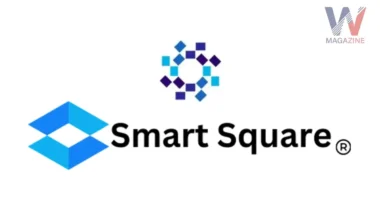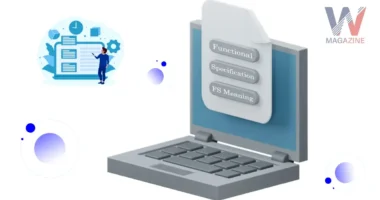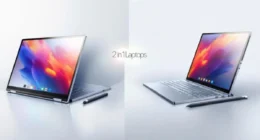Table of Contents
A 5 G-connected laptop managed service is a complete solution where businesses get laptops that connect directly to 5G mobile networks, combined with expert support to set them up, secure them, update them, and fix issues, all managed by a trusted provider. It’s not just about the laptop; it’s about making sure employees have fast, secure, and seamless access to company resources, whether they’re at home, on the road, or working in the field.
Instead of relying on Wi-Fi hotspots or slow VPNs, a 5 G-connected laptop connects instantly to a robust cellular network as soon as it’s turned on. It’s managed end-to-end, IT teams handle procurement, activation, security, monitoring, and even device recycling. This model frees your internal IT from juggling hardware, software, and cellular plans, so they can focus on bigger tasks.
Why Businesses Are Adopting These Services?

Always-On Connectivity
With 5G, laptops have full internet access from almost anywhere no more hunting for Wi-Fi or dealing with spotty connections. Whether you’re commuting, working remotely, or traveling, your laptop stays online with high-speed and low-latency service. This constant connectivity also enables faster downloads, cloud access, and better video conferencing.
Enhanced Productivity
Working on business-critical tasks over laggy connections is frustrating. With 5G, users enjoy rapid data transfers, real-time collaboration, and seamless use of remote tools, all no matter where they are. That means fewer disruptions and more efficient workflows.
Stronger Security
Public Wi-Fi is risky. A 5G laptop avoids that danger by connecting securely to the cellular network, reducing the attack surface. Managed services also include security features like SIM-based SASE, firewall integration, VPN enforcement, remote wipe, and real-time monitoring, keeping threats at bay.
Simplified IT Management
IT teams love this model because the service provider handles device purchase, setup, activation, updates, and lifecycle recycling. They also manage cellular plans, SIM provisioning, and network slicing, letting your IT staff focus on strategic projects, not device logistics.
Lower Total Cost of Ownership
Although 5G devices may have a higher upfront cost, managed services help reduce expenses by consolidating hardware, data plans, and support under one subscription. Centralized procurement and financing choices also help reduce expenses across the entire device fleet.
Key Features of the Service
| Feature | What It Means | Business Benefit |
| SIM-based SASE & network slicing | Secure, segmented connectivity per device | Stronger security and traffic control |
| Device lifecycle management | from buying to recycling devices | Saves time, reduces e-waste |
| Always-on updates & monitoring | Devices stay patched and tracked | better reliability and fewer support tickets |
| Edge computing integration | Workloads processed closer to users’ | Lower latency, faster applications |
| IoT & multi-device options | Extend connectivity beyond laptops | Ideal for tablets, sensors, and other 5G devices |
Benefits for Modern Businesses
Empowered Remote & Hybrid Teams
Employees can take their work anywhere car, cafe, on-site, and stay connected and productive, with no slowdowns. This fosters flexibility and attracts top talent.
Better Security Posture
Built-in encryption, private network slices and managed access reduce the risks posed by public Wi-Fi. This is a huge win for compliance-heavy industries like finance, healthcare or government.
Scalable & Future-Ready
5G can support massive device counts (like IoT fleets), integrate with edge computing and adapt to AI-powered workloads all vital for digital transformation.
Cost Efficiency
Predictable cost models, centralized management, and reduced internal IT effort make budgeting easier and reduce total cost over time.
Faster ROI
With better uptime, fewer disruptions streamlined IT, and improved security, businesses see quick returns in productivity, lowered risk, and streamlined operations.
Who Should Use It?
Remote and hybrid workforce organizations that need reliable access everywhere.
Field teams, consultants, or employees on the move. Security-focused industries need better endpoint control. IoT-heavy businesses are aiming to connect sensors, devices, or vehicles. CIOs and IT leaders looking to offload device and connectivity hassles.
How to Implement a 5G Connected Laptops Managed Service?
- Choose a trusted provider (like MCPC, T Mobile, Verizon, or Dell partners) that offers SIM-based security, lifecycle management, and strong support.
- Assess coverage & plan needs and look for standalone 5G, network slicing options, and edge computing integration.
- Pilot with target teams’ IT, sales, and field operations to collect feedback on connectivity, cost, and workflows.
- Roll out phased deployment, and monitor usage, security, and user satisfaction with real-time analytics.
- Scale across devices, adding tablets or IoT endpoints as needed under one management platform.

Not all 5G networks are created equal, and performance can vary widely by location, carrier, and even device. While enterprise-focused providers like Verizon and T-Mobile dominate this space, some businesses exploring budget-friendly or pilot deployments may consider MVNOs (Mobile Virtual Network Operators). According to this SpeedTalk Mobile 2025 review by Wordle Magazine, low-cost carriers can provide surprising value, especially for smaller device fleets or IoT connectivity use cases. It’s worth comparing data speeds, reliability, and service levels before making a commitment.
FAQ
Q1. What is a 5 G-connected laptop’s managed service?
A 5G 5-connected laptop managed service is when a company gets laptops that have built-in 5G connections. A service provider takes care of everything: setting them up, keeping them secure, updating them, and fixing problems. It means your team can work anywhere with fast internet and your IT team doesn’t have to worry about the laptops.
Q2. How is it different from regular laptops that just use Wi-Fi?
Regular laptops need Wi-Fi to get online. With 5 G-connected laptops, you don’t need to look for Wi-Fi because the laptop connects directly to the mobile network, just like your smartphone. It’s faster, safer, and works almost everywhere.
Q3. Why do businesses use a managed service instead of handling it themselves?
Handling many laptops can be difficult and take a lot of time. A managed service provider handles buying the laptops, setting them up, securing them, updating them, and even recycling them when they’re old. This saves time, keeps devices safer, and usually costs less in the long run.
Q4. Is it safe to use 5 G-connected laptops?
Yes, they are actually safer than using public Wi-Fi. Managed service providers add extra protection like encryption, secure access, and remote wiping, so your company data stays protected even if someone loses a laptop.
Q5. Who should use a 5 G-connected laptop managed service?
It’s great for companies with remote workers, field teams, or people who travel often. It’s also useful for businesses that want better security and less hassle for their IT team.
Conclusion
A 5 G-connected laptop’s managed service is more than just fast hardware; it delivers a unified solution that boosts productivity, security, and cost control. Employees stay connected anywhere; IT gets one dashboard to manage devices and connectivity; businesses gain flexibility and reduce risk. With 5G still scaling up globally, this model offers a future-proof path to modern work and a strategic advantage in a hybrid-centric world.









